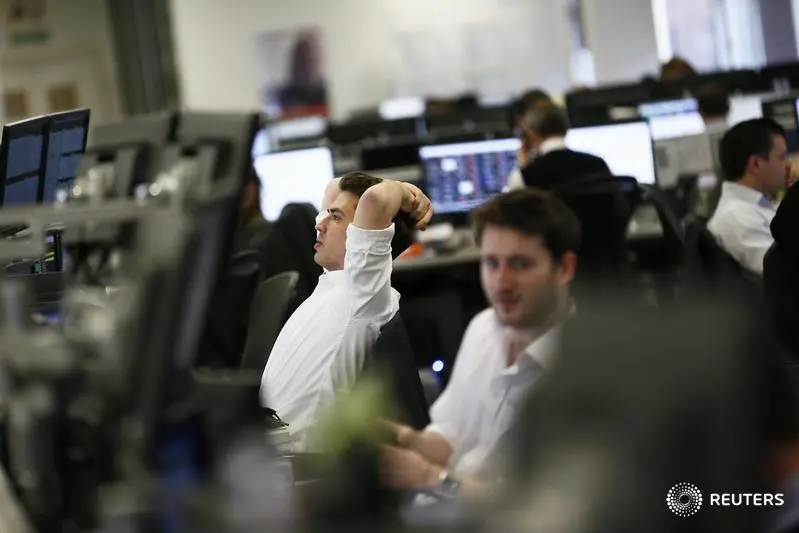PHOTO
LONDON/SYDNEY - European shares climbed on Wednesday as surprisingly upbeat U.S. economic news eased global growth concerns, while the embattled yen hit a 15-year low against the euro and Japan hinted at intervention to prevent further losses.
Treasury yields inched higher on the strength of U.S. data, combined with hawkish commentary emerging from Portugal at a gathering of central bank heavyweights including Federal Reserve Chair Jerome Powell, European Central Bank head Christine Lagarde and Bank of Japan Governor Kazuo Ueda.
European inflation and rate hike hints from Portugal were the focus for Tim Graf, head of EMEA macro strategy at State Street Global Advisors.
"Unless you get some big exogenous shock between now and the next ECB meeting, they're going to hike rates again," he said.
Across the Atlantic, the U.S. economy continues to show resilience in the face of tighter monetary conditions, he added.
"Recession probability models in the U.S. project a 55-70% to 65-70% probability we'll get a recession in the next 12 months. But we've been hearing this for the last 12 months, and it's not here," said Graf.
A broader bullish sentiment helped MSCI's broadest index of global shares tick up 0.2%. at 0845 GMT.
U.S. money market futures now imply around a 77% chance of a hike to 5.25-5.5%, and slightly more risk of a further move to 5.5-5.75%, which nudged short-term Treasury yields higher.
In equities, U.S. stock futures eased, with those on the S&P 500 down 0.2% and those on the Nasdaq 100 down 0.5%, after a Wall Street Journal report that Washington was considering new restrictions on exports of artificial intelligence chips to China.
The report knocked Nvidia 4% lower in the premarket on Wednesday.
EURO ON THE RISE
Bond yields also moved sharply higher in Europe after a bevy of central bankers sounded hawkish on inflation and warned rates would likely have to stay higher for longer.
Markets imply a 90% probability of an ECB rate hike to 3.75% in July and a peak around 4.0%.
That underpinned the euro at $1.0954, while keeping it near a 15-year peak of 157.98 yen.
The dollar had hit a near eight-month top of 144.18 yen , before easing back to 143.85 as Japanese officials again protested against the yen's weakness.
Japan's top currency diplomat Masato Kanda on Wednesday warned against further falls in the yen, saying authorities would take an appropriate response if moves became excessive.
Markets are wary in case Japan intervenes to buy the yen as it did last October, which knocked the dollar down from 151.94 to as low as 144.50 in a matter of hours.
Yet a rally in the yen looks unlikely while the Bank of Japan maintains its super-easy monetary policy, analysts said.
"Following BOJ Governor Ueda's consistently dovish message and weak Japanese wage growth, market participants now lack the conviction the BOJ will soon tighten its monetary policy," said Carol Kong, a currency strategist at CBA.
"So we now see a higher risk Japanese authorities will step into the market to prop up the JPY."
In commodities, gold hovered at a three-month low of $1,909 an ounce, after finding support at the recent three-month low of $1,909.99.
Oil prices edged up after data showed a larger-than-expected draw in U.S. crude and gasoline inventories, but they remain uncomfortably close to lows for the year so far.
Brent dropped about a dollar after earlier highs to $71.92 a barrel, while U.S. crude fell 0.5% cents to $67.33.
(Reporting by Nell Mackenzie and Wayne Cole; Editing by Lincoln Feast, Kim Coghill and Conor Humphries)




















